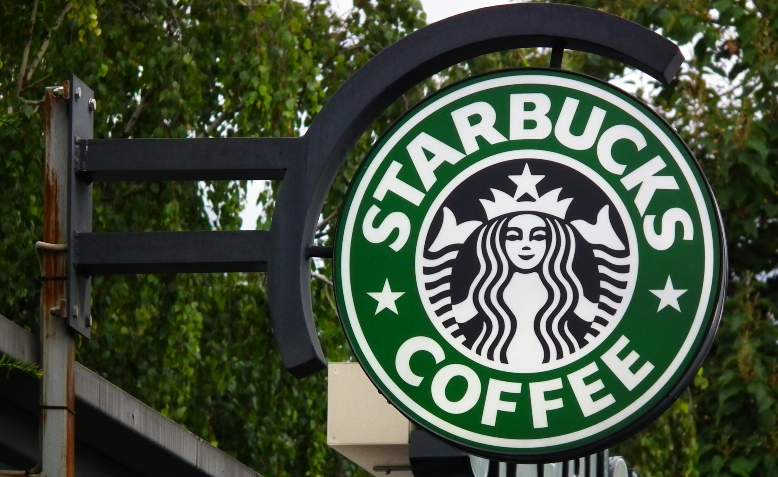 Starbucks, Mannheim, Germany. Photo: 4028mdk09 / Wikimedia Commons / CC BY-SA 3.0, license linked at bottom of article
Starbucks, Mannheim, Germany. Photo: 4028mdk09 / Wikimedia Commons / CC BY-SA 3.0, license linked at bottom of article
Starbucks workers in Buffalo, New York successfully defeated management’s punishing anti-union campaign in a historic victory, reports John McGrath
Starbucks is the world’s largest coffeehouse franchise and has become one of the most recognisable consumer brands in existence. In the United States alone, Starbucks has 8,953 corporate-owned stores. For the past 50 years, none of these Starbucks outlets have been unionised.
This changed Thursday when the Elmwood Avenue location in Buffalo, NY (the second largest city in New York) voted 19-8 to form a union. The organising drive was led by Starbucks Workers United and followed months of targeted union-busting efforts by the corporation. A second branch in Buffalo, the Genesee Street site, also voted in favour of forming a union 15-9, but that result is being contested by the company and the NLRB (National Labor Relations Board) has yet to rule a decision.
Congratulations to @SBWorkersUnited on the HISTORIC achievement of organizing the first-ever union at a company-owned Starbucks in the US. The company should stop pouring money into the fight against the union and negotiate a fair contract now. pic.twitter.com/yNiXOjzy2v
— Bernie Sanders (@BernieSanders) December 9, 2021
Workers in three branches in Buffalo announced they were forming a union in August, and have faced a punishing anti-union campaign from management since. Top ranking executives were flown from Seattle headquarters and effectively moved to Buffalo to squash the unionisation effort. They came up with the term “support managers” to legitimise their being parachuted into the Buffalo shops.
Corporate representatives were a consistent presence in all three branches and did their best to isolate organisers from coworkers. Adherence to dress code and health and safety standards were closely monitored as they were looking for a reason to fire organisers (in some cases successfully). Starbucks workers were subjected to weeks of anti-union meetings, labelled “listening sessions”, where suits made absurd claims that workers would lose their benefits and freedoms if they went through with the vote to form a union.
At a press conference on 1 December, SBWU organisers Jaz Brisack and Michelle Eisen told of how the company was moving dozens of recently-hired employees from other branches to dilute the union support in the organising branches. This was done over the heads of branch managers. “The purpose of them taking hiring out of the store manager’s hands was to be able to vet these new employees… get them to attend these anti-union meetings before they’ve entered our store,” Eisen stated.
Starbucks prides itself as a progressive company. Employees are labelled “partners” and the company points to their measly benefit package of healthcare and tuition support as evidence. When former CEO Howard Shultz launched a short lived Presidential campaign in 2020, he pointed to Starbucks as an example of how the country should be governed: “socially responsible” private enterprise meeting the needs of its workers independent of a welfare state. Markets and corporations like Starbucks could better meet the needs of the population than could the federal government, or so he argued.
In reality, employees make on average $13 an hour and company benefits have been reduced in recent years. As Eisen points out, the benefits “look really good on paper, what they don’t talk about is the fact that most of their employees or “partners” make so little annually that they don’t need to use Starbucks benefits because they still qualify for federal benefits”.
Why now?
Organisers have been trying to unionise branches for decades, so what factors led to Thursday’s vote is worth considering. To SBWU’s advantage, corporate’s assault on the workers of Buffalo backfired. The environment became so toxic, employees doubled their resolve to form a union.
Starbucks’ “churn and burn” tactics didn’t help either; staff is overworked and the company doesn’t reward longevity with higher pay so there is no incentive to make a career in the company, which creates resentment. And Starbucks’ handling of the pandemic was pretty lousy as well. Workers weren’t provided adequate safety measures during the pandemic, no new workers were hired to implement sanitation protocols, and hazard pay was limited to the first 4 weeks of stay-at-home mandates.
Two unsuccessful but energising presidential runs by Bernie Sanders might have given young workers, who he was popular with, agency in their workplace to demand more from their employer. Attitudes about organised labour when polled in the US are on a 60 year high. Most importantly, the tight labour market of recent months has increased the bargaining leverage of workers, including non-unionised workers, and many are leaving the workforce or switching to higher-paying jobs. The time was right for a variety of reasons.
Is Thursday’s vote merely symbolic or is it an important event in US labour history? Time will tell. It’s certainly iconic as Starbucks, like Amazon, represents something of a giant that has proven impossible to take down. One or two branches unionising should encourage more to follow suit around the country and hopefully in the restaurant industry in general which suffers from some of the lowest pay in corporate America.
Thursday’s vote in Buffalo is the first step in what will be a difficult contract negotiation between SBWU and the corporation, and Starbucks has demonstrated that it isn’t playing nice. But undoubtedly the winning vote is a step that needed to happen to advance the labour movement and it’s very much an encouraging development.
Before you go
Counterfire is growing faster than ever before
We need to raise £20,000 as we are having to expand operations. We are moving to a bigger, better central office, upping our print run and distribution, buying a new printer, new computers and employing more staff.

